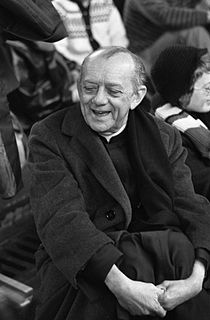A Quote by Charles Spurgeon
None are more unjust in their judgments of others than those who have a high opinion of themselves.
Related Quotes
All modes of government are failures. Despotism is unjust to everybody, including the despot, who was probably made for better things. Oligarchies are unjust to the many, and ochlocracies are unjust to the few. High hopes were once formed of democracy; but democracy means simply the bludgeoning of the people by the people for the people. It has been found out. I must say that it was high time, for all authority is quite degrading. It degrades those who exercise it, and degrades those over whom it is exercised.
Those who love others
grandly are those who love themselves grandly. Those who have a high
toleration and acceptance of others are those who have a high
toleration and acceptance of themselves. You cannot show another a part
of you that you cannot show yourself. Therefore, begin where all
growth, where all evolution, where all love must begin; with the person
in the mirror.
Those who know others are intelligent Those who know themselves have insight. Those who master others have force Those who master themselves have strength.Those who know what is enough are wealthy. Those who persevere have direction. Those who maintain their position endure. And those who die and yet do not perish, live on.
It is not the actions of others which trouble us (for those actions are controlled by their governing part), but rather it is our own judgments. Therefore remove those judgments and resolve to let go of your anger, and it will already be gone. How do you let go? By realizing that such actions are not shameful to you.
A prejudice may be an unreasoned judgment, he [Hibben] pointed out, but an unreasoned judgment is not necessarily an illogical judgment. ... First, there are those judgments whose verification has simply dropped out of memory. ... The second type of unreasoned judgments we hold is the opinions we adopt from others ... The third class of judgments in Professor Hibben's list comprises those which have subconscious origin. The material that furnishes their support does not reach the focal point of consciousness, but psychology insists upon its existence.
In a society where some people are far more educated than others, in which public education is ill-funded - here I am speaking of the U.S. - while we build more and more prisons to incarcerate youth who ought to be in school, there is already a gap between those with education and those without. Those with educational privilege can be seen as arrogant, remote, alien - and very often they believe themselves superior.




































